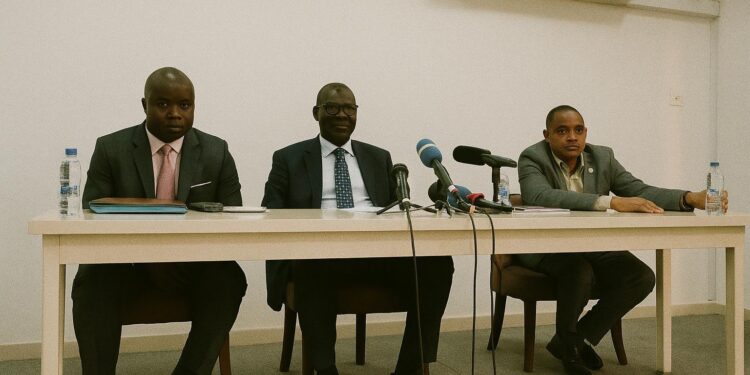Legal Backbone of the 2023 Sports Code
The promulgation of Law n°23-2023 on 27 July 2023 was widely interpreted by regional observers as Brazzaville’s determination to modernise its sporting sector and to align domestic governance with international standards advocated by bodies such as the International Olympic Committee. Nearly a year later, the government has given operational flesh to that text by publishing Decrees n°2025-128 and n°2025-129, signed on 18 April 2025 and presented on 7 July in the capital by the Director-General of Sports, Jean Robert Bindélé. The decrees convert the original legislative intent into precise obligations, incentives and sanctions, thereby shifting the debate from political aspiration to administrative enforceability (ACI, 8 July 2025).
Ethical Architecture for Officials, Coaches and Athletes
Decree n°2025-128 delineates a comprehensive catalogue of duties grounded in the twin notions of fairness and patriotism. It codifies respect for rules, deference to match officials, protection of opponents’ dignity and a commitment to equal opportunity among athletes. Because most spotlight traditionally falls on football, the authorities were keen to underscore that the decree applies across all federations, reinforcing a culture of compliance from community tournaments to continental championships. Legal scholars at Marien Ngouabi University note that the text borrows from the Olympic Charter while retaining Congolese cultural inflections, emphasising esprit de famille alongside the global vocabulary of fair play.
Selection Criteria and Their Diplomatic Resonance
The companion Decree n°2025-129 frames national-team call-ups as both an honour and a duty. It restricts eligibility to high-performance athletes of Congolese nationality whose conduct, on and off the field, meets a threshold of moral rectitude. By embedding character references within selection procedures, Brazzaville situates sport at the crossroads of domestic social policy and external image-building. Foreign embassies regularly monitor squad lists published ahead of international fixtures; the new criteria therefore operate as a subtle instrument of public diplomacy, signalling that sporting excellence is inseparable from civic virtue.
Financial Incentives and the Economics of Motivation
One of the most scrutinised sections concerns match bonuses. Athletes will receive graded premiums for draws, victories, qualifications and exceptional performances, while defeats yield no remuneration. Individual sports retain the familiar gold-silver-bronze hierarchy, yet the decree innovates by extending bonus eligibility to a broad technical entourage that includes video analysts, sports psychologists and nutritionists. Economists at the African Centre for Sport Studies calculate that, although headline figures remain modest by global standards, the predictable structure could cultivate a performance culture and curb ad-hoc negotiations that previously plagued preparatory camps.
Institutional Synergy and Ministerial Oversight
Implementation will hinge on coordination among the Ministry of Sport, the National Olympic Committee and each federation. Minister Hugues Ngouélondélé has indicated that internal compliance units will be set up to audit adherence and recommend sanctions such as suspension or restitution of bonuses. While some athlete representatives privately worry about bureaucratic delays, public comments from senior football coach Barthélemy Ngatsono welcome what he calls a “long-awaited framework that protects both the athlete and the national jersey”.
Regional Benchmarks and Continental Soft Power
Neighbouring countries, notably Cameroon and Gabon, have in recent years deployed sports diplomacy to reinforce state narratives of stability and progress. Congo-Brazzaville’s decrees similarly merge domestic governance with external messaging, projecting an image of disciplined ambition ahead of events such as the 2026 African Nations Championship bid. Political analysts in Addis Ababa suggest that by institutionalising merit-based selection and transparent incentives, Brazzaville positions itself as a credible interlocutor in wider conversations on governance reform within the African Union Sports Council.
Consolidating Norms, Consolidating Identity
Taken together, the decrees translate legislative vision into a normative framework that conflates athletic discipline with national identity. They strengthen administrative predictability, mitigate discretionary decision-making and shape a results-driven ethos without alienating key stakeholders. Far from being a mere legal exercise, the move illustrates how the Republic of Congo continues to anchor its developmental narrative in soft-power arenas where victories are measured not only by goals scored but also by the values professed in the process.











































